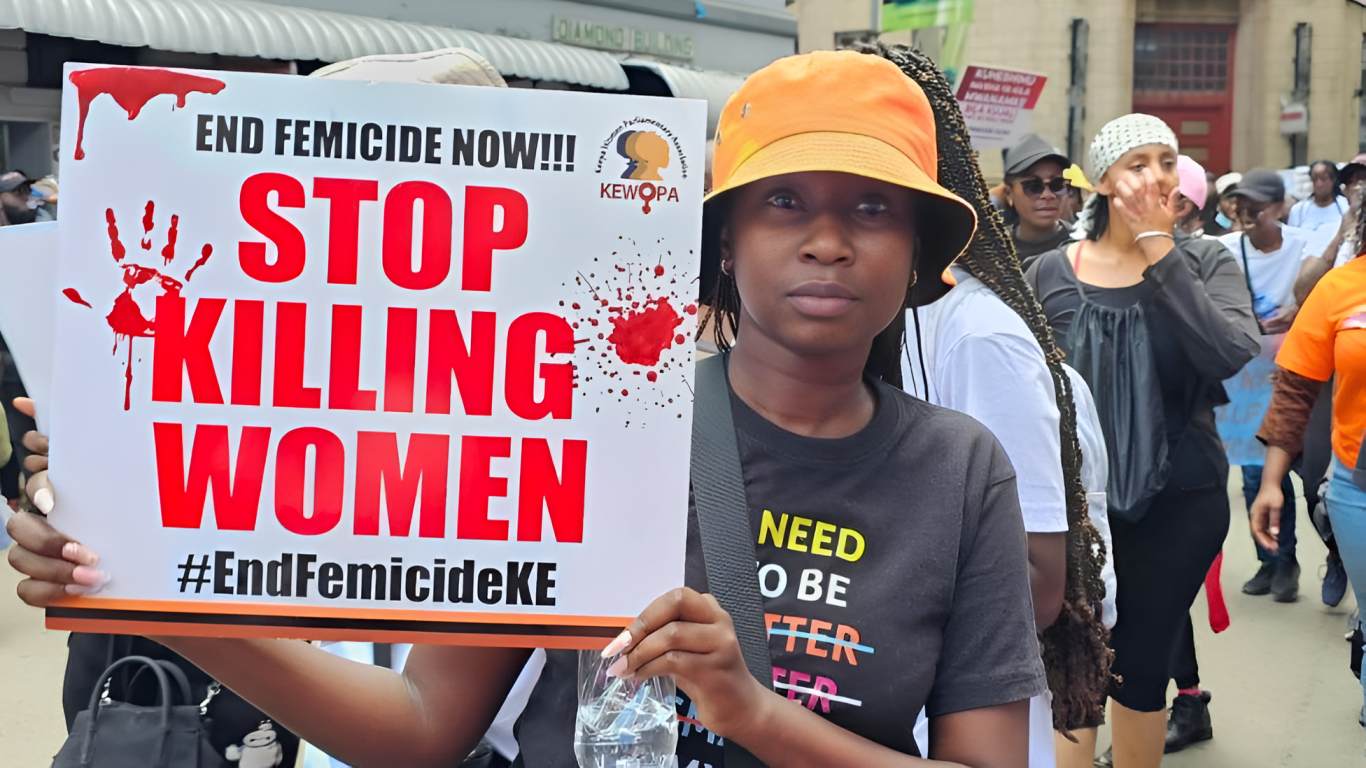Boost for women’s rights advocates as convention takes effect

To fully implement the African Union Convention on Ending Violence Against Women and Girls, Kenya’s Parliament must ratify the agreement to incorporate it into national law. Kenya has already signed the convention.
Efforts to combat violence against women and girls in Kenya have gained significant momentum following the activation of a new continent-wide convention aimed at ending this issue on Wednesday, May 28.
To fully implement the African Union Convention on Ending Violence Against Women and Girls, Kenya’s Parliament must ratify the agreement to incorporate it into national law. Kenya has already signed the convention.
President William Ruto was among the leaders who endorsed the convention at the African Union Summit held in Addis Ababa this past February.
Despite these steps, violence against women and girls remains widespread in Kenya.
According to the 2022 Kenya Demographic and Health Survey, nearly 40% of women have suffered physical violence, while over 10% have experienced sexual violence.
The survey showed that 34% of women aged 15 to 49 have experienced physical violence since turning 15, with 16% reporting physical violence within the year prior to the survey.
Additionally, 13% have endured sexual violence during their lifetime, and 6.4% experienced it in the past year.
Many incidents remain unreported due to stigma, fear of retaliation, or distrust in the justice system.
Advocates for gender equality and the fight against gender-based violence are now focusing on urging the government to fast-track the domestication of the convention, enabling its enforcement through the courts to protect Kenyan women and girls.
Grace Wanjiku, a grassroots girls’ rights activist from Nanyuki, highlighted the importance of regional frameworks in applying pressure on governments to take action.
“The convention coming into effect on May 28 is a major victory for the women and girls’ rights movement, adding a powerful tool to our fight. The more tools we have, the stronger our efforts,” she said.
“A continent-wide legal instrument offers opportunities to build solidarity across regions and the continent and provides a platform to hold governance structures accountable if Kenya falls short in tackling violence against women and girls.”
Recognized as a landmark legal framework, the convention offers a comprehensive, legally binding approach to preventing and eliminating all forms of violence against women and girls across Africa.
It tackles both prevention and response by addressing root causes, strengthening legal and institutional systems, and fostering a culture of gender equality and respect for women’s rights.
"This is a historic milestone for Africa," said Bineta Diop, the AU Special Envoy on Women, Peace, and Security.
"We now possess a strong instrument to hold states accountable and guarantee that women and girls can live free from fear, violence, and discrimination."
The convention covers a wide range of violence, physical, psychological, sexual, and economic, including domestic abuse, female genital mutilation, early and forced marriage, sexual violence in conflict areas, workplace harassment, and online abuse.
It also focuses on intersecting discrimination based on race, ethnicity, age, disability, or socioeconomic background, ensuring no woman or girl is left behind.
In Kenya, the convention is seen as a vital complement to ongoing national initiatives.
“We already have progressive laws like the Protection Against Domestic Violence Act, the Sexual Offences Act, and the Prohibition of FGM Act, but their enforcement has been uneven,” said Beatrice Okumu, a gender rights advocate from the Women’s Justice Forum.
Policy experts highlight that the convention pushes states not only to align their laws and policies but also to invest in survivor-focused services, including shelters, psychosocial support, legal assistance, and safe reporting mechanisms.
"It’s about building a system that supports survivors and holds perpetrators accountable," said Prudence Ngwenya, head of the AU Gender Directorate.
For Kenya, ratifying the convention would reinforce its leadership in pan-African gender justice.
It would also complement existing efforts such as the AU Campaign to End Child Marriage and the UN Spotlight Initiative, which Kenya joined in 2019.
